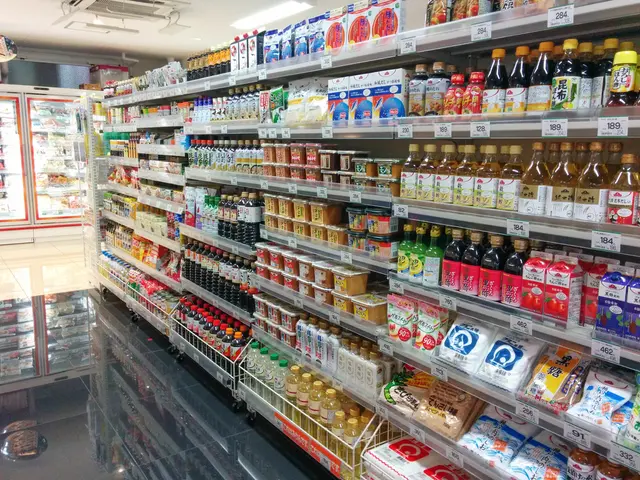Future Aviation Dynamics Molding Airline Sector Evolution
Modern aviation is on a transformative journey, driven by rapid technological advancements that have a profound impact on operational efficiency, customer experience, and sustainability. Let's delve into the key trends shaping the airline industry.
Why Airline Operators Need to Stay Current
Staying abreast of industry trends is essential for airline operators to stay competitive, improve efficiency, and meet evolving passenger expectations.
- Gain Competitive Advantage: The fierce competition among airlines, notably low-cost carriers now accounting for 35% of global air travel, demands quick adaptation to changes, giving trend-conscious airlines an edge in seizing new opportunities.
- Operational Efficiency: With airlines earning merely $6.14 per passenger, reducing costs and boosting efficiency is crucial. Embracing tech trends like aviation analytics can help pinpoint inefficiencies, leading to substantial savings and smarter operation practices.
- Enhanced Customer Experience: As passengers' expectations shift, staying up-to-date with trends enables airlines to understand and meet their needs effectively. For example, many carriers have adopted New Distribution Capability (NDC) technology, which provides flexible pricing, personalized options, and a seamless customer experience.
- Sustainability: A growing number of passengers care about environmental concerns, pushing airlines to focus on greener operations. Solutions like predictive maintenance or carbon reduction initiatives empower airlines to meet regulations, customer demands, and stand out from the competition.
Tech Trends in the Airline Industry
Awareness of the following cutting-edge trends empowers airlines to enjoy a competitive edge, boost efficiency, and deliver better engagement.
Digitalization and Digital Transformation
- Digitalization: Involves converting paper-based processes into digital ones, such as scanning documents and digitizing records. This paves the way for more efficient and cost-effective operations.
- Digital Transformation: A full-scale overhaul of airline operations using AI, cloud computing, blockchain, IoT, and other tech to improve efficiency and operations.
For example, British Airways recently undertook a £7bn plan to transform the customer experience through digital means, delivering personalization and convenience in various aspects, from a user-friendly website and mobile app to onboard messaging and Wi-Fi. Studies suggest that digital transformation can save airlines up to $15 billion by 2035.
Automation
Automation, often fueled by AI, enables airline operations to become more streamlined and cost-effective, reducing human intervention in routine or complex tasks.
Applications of automation in aviation:
- Autopilot and flight management systems
- Ground services
- Customer support (through chatbots and AI-powered assistants)
- Crew scheduling and bookkeeping
Analytics and Data-Driven Decision Making
Latest aviation technology revolves around data analytics, allowing airlines to consolidate and analyze vast amounts of data for informed decision-making.
- Predictive maintenance
- Improved flight performance
- Enhanced fuel efficiency
- Increased passenger satisfaction and demand forecast
Take American Airlines, which seeks to minimize disruptions and streamline its operations by leveraging analytics for efficiency gains.
Customer Journey Upgrade
The customer journey upgrade movement focuses on delivering a personalized travel experience by understanding customer preferences and behaviors.
- Data-driven personalization across all stages of the customer journey
- Up-selling opportunities for seat upgrades, in-flight meals, priority boarding, etc.
- AI-powered customer service through self-service kiosks, mobile apps, and chatbots, providing assistance 24/7
Sustainability Initiatives
Eco-conscious passengers and regulations drive airlines to adopt greener methods, from carbon-reduction initiatives to investment in sustainable fuels.
- Predictive maintenance to ensure optimal aircraft performance and lower emissions
- Carbon reduction initiatives including carbon offsetting programs
- Incorporation of biofuels or synthetic fuels in operations
Staying abreast of technology trends in the airline industry lays the groundwork for airline operators to innovate, drive change, and triumph in an ever-evolving landscape, keeping passengers happy and operations running smoothly.
- Advancements in data analytics can provide airlines with valuable insights, enabling them to make informed decisions about maintenance, flight performance, fuel efficiency, and passenger demand.
- Embracing digital transformation through the use of AI, cloud computing, blockchain, and IoT can not only improve operational efficiency but also save airlines up to $15 billion by 2035.
- Machine learning and automation can streamline various airline operations, from autopilot and ground services to crew scheduling and customer support, leading to cost savings and increased efficiency.





